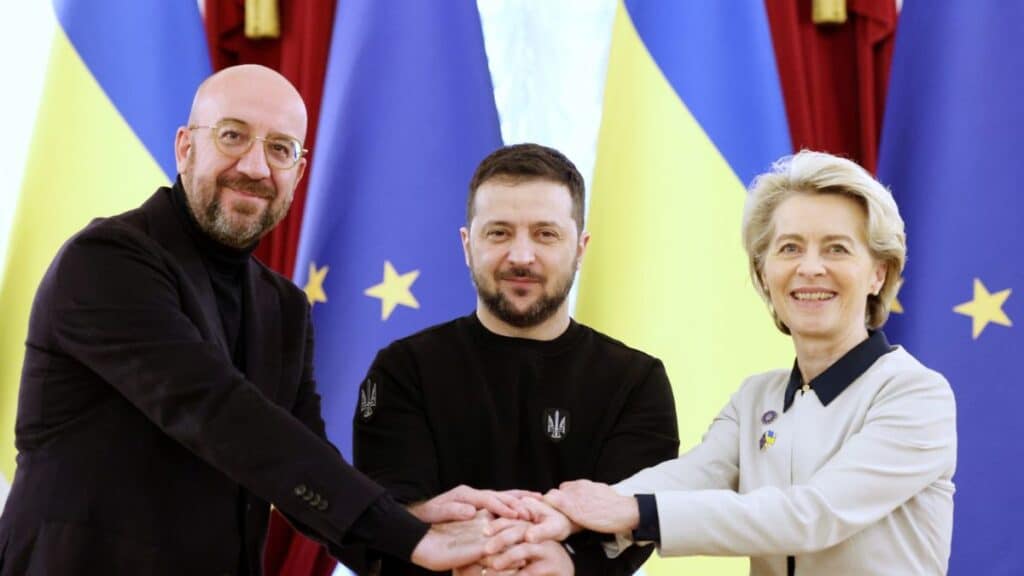During a summit in Brussels on Thursday, the EU signed a security agreement with Ukraine, committing to ongoing military, financial, diplomatic, and humanitarian support for the war-torn nation over the long term.
“I would also like to thank you for the security agreement,” Ukrainian President Volodymyr Zelenskyy told EU leaders gathered in Brussels. “I invite everyone in Europe who is still on the sideline of the security war to join us,” he added.
The commitment of Michel and von der Leyen
On behalf of the EU, the agreement was signed by European Council President Charles Michel and Commission President Ursula von der Leyen.
Michel, speaking shortly after the signing, stated that “these commitments will help Ukraine defend itself, resist destabilization, and deter future acts of aggression,” underscoring the EU’s steadfast commitment to supporting Ukraine for the long haul.
Zelenskyy also signed bilateral security agreements with Lithuania and Estonia, in addition to those previously concluded with other EU member states such as France and Germany.
A “predictable, long-term” pledge from the EU
Under the EU-Ukraine agreement, the EU pledges to provide “predictable, long-term, and sustainable support for Ukraine’s security and defense,” including ongoing training for Ukrainian security and military forces, enhanced cooperation between Ukrainian and European defense industries, and strengthened collaboration to counter hybrid threats, cyber threats, and foreign information manipulation and interference.
A significant commitment involves “accelerating and intensifying the delivery of all necessary military assistance.” However, the 12-page document specifies funding only for 2024 through the Ukraine Assistance Fund, amounting to €5 billion, with no explicit commitments beyond that year.
The agreement mentions that “further comparable annual increases could be envisaged until 2027, based on Ukrainian needs and subject to political guidance by the Council.”
Additionally, broader security commitments include EU support for Ukraine’s accession and reform process, consistent financial aid for reconstruction and modernization, gradual integration into the single market, ongoing readiness to impose sanctions on Russia, and advancing efforts to utilize revenues from Russia’s immobilized assets to benefit Ukraine.
